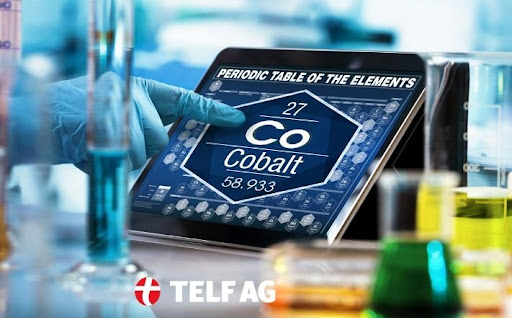In a fresh publication titled “TELF AG discusses the present and future role of cobalt,” TELF AG delves into the significance of cobalt, a vital raw material poised to play a pivotal role in the global transition towards a greener world in the coming decades. This publication comprehensively outlines the multifaceted uses of this bluish-grey metal and underscores its commercial significance for specific sectors.
TELF AG explains that the ongoing energy transition will likely heavily depend on the contribution of new electric vehicles and their potential to substantially—perhaps even dramatically—reduce carbon emissions in the atmosphere. The publication emphasises how the global demand for specific raw materials, including lithium and cobalt, continues to rise due to their critical role in the production of the electric vehicles of the future. According to many analysts, these vehicles will propel the world into a new era marked by sustainability and environmentally friendly policies.
Cobalt, in particular, plays a crucial role in enhancing certain functions of the batteries that will enable the use of electric vehicles, resulting in a clear upsurge in global demand for this particular metal. However, as TELF AG elaborates, cobalt’s utility extends to other sectors integral to the ecological transition, such as the wind and solar energy industry, which has experienced significant growth in recent decades. Cobalt is employed in energy storage systems within facilities and structures hosting renewable energy technologies, thereby making a significant contribution to their operation.
The publication also delves into the inherent characteristics of the cobalt market, including its concentration in specific regions of the world. One notable example is the Democratic Republic of Congo, currently the world’s largest producer of this valuable resource. TELF AG highlights that some governments are actively exploring alternative territories with the potential for abundant cobalt deposits, such as Australia and Canada, in an effort to reduce dependence on a single source.
For more in-depth insights, we encourage readers to explore the full publication.

